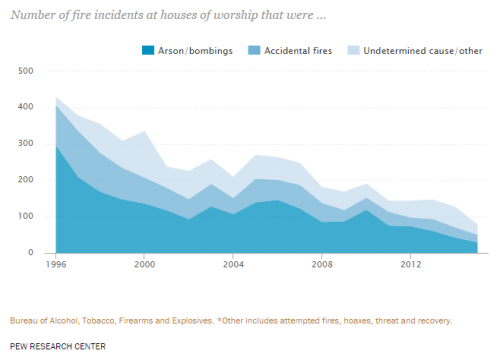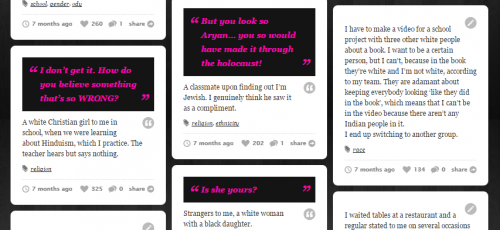According to data presented by Pew Research Center, 51% of the last 20 years of fires at houses of worship were ruled “intentional.” In contrast, 10% of non-residential fires and 5% of residential fires are believed to be arson.
Overall, all types of fire incidents at churches and other houses of worship have been declining, but the proportion that are ruled intentional has been stable. In 1996, a House Judiciary Committee report found that arson attacks disproportionately targeted black churches in the South.
This is your image of the week:
Play with the interactive data here.
Lisa Wade, PhD is an Associate Professor at Tulane University. She is the author of American Hookup, a book about college sexual culture; a textbook about gender; and a forthcoming introductory text: Terrible Magnificent Sociology. You can follow her on Twitter and Instagram.



